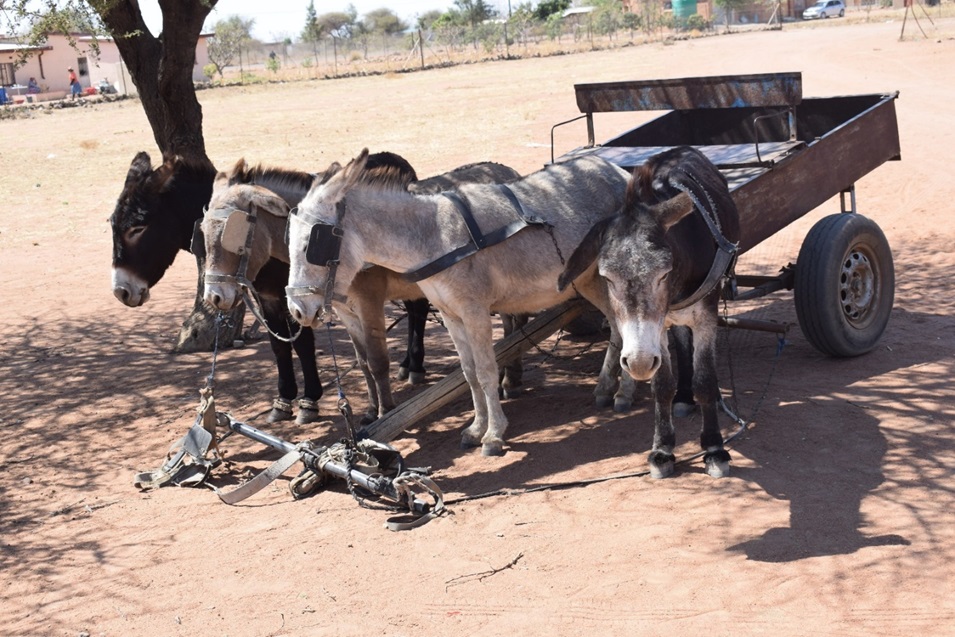By Matsobane Manaka

The 7th of May is an International Donkey Day, a week after celebration of International Workers’ Day on the 1st of May. Both days are celebrated annually to acknowledge hard workers.
Donkey is rated as one of the most workaholic animal on the planet. This is despite some myths and misconceptions associated with donkey that, donkey does not get sick, have no owners, overgraze, and waste fodder among others that often overshadow the role donkey plays in contributing towards economic growth especially in rural areas.
Fuel prices and transportation continue to shrink the pockets, but donkey remains a reliable, most efficient, and sustainable mode of transport for different commodities in farming and rural communities.
Donkey does not only regarded as pack carriers, but used as traction in rural areas by small-scale farmers. Donkey pulls carts and wagons carrying water, woods, sands, fertilisers, harvested produce for small scale farmers, carries elderly to pension points, sick people to local clinics and further used to ferry learners to school. As a result, however, owners can generate income thereby alleviating poverty in rural communities.
The North West Community Safety Department has recently donated donkey carts, that come with two- and four-seater versions, to rural communities in the districts of Mahikeng in a quest to address their socio-economic challenges. Women were the most beneficiaries.
In addition to work, Donkey can be used further for breeding, eating, and milking. Donkey meat and milk have lots of health benefits. Milk contains vitamin A, B1 and B2, vitamin C, E, sodium, phosphorus, potassium, immunoglobulin, magnesium, and calcium. Donkey meat have a low-fat content and an appreciable protein content. Donkey skins are used to make gelatine for a product called ejiao – a product that has been used as traditional Chinese medicine for years, thus according to Mompati Kgomonyane Modimogale from Anga Holdings (PTY) LTD.
He said, “for cosmetics, donkey milk suits all skin types including sensitive skins. As a nourishing product, it is equally beneficial for dehydration skin. As for oily skin, donkey milk’s mineral rich yet low in fat, making it an excellent moisturiser. Its restructuring properties help to firm skin and reduce wrinkles, so it also works wonders on mature skin. It also helps regenerate skin dried out by the sun”.
The management of donkey begins from the production to abattoir, where meat and skin are produced as well as the associated by-products to dairy where milk and milk by-products are also produced including the animal feed. The whole value chain enabled job creation and food security. It is time that donkey animal be recognised with regards to economic contribution and given an equal role to compete with other livestock industries.


